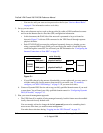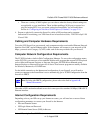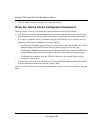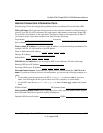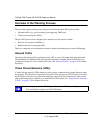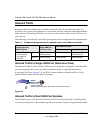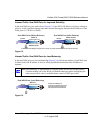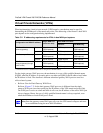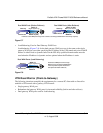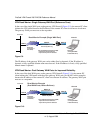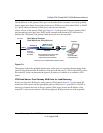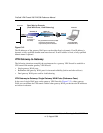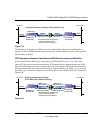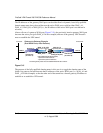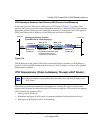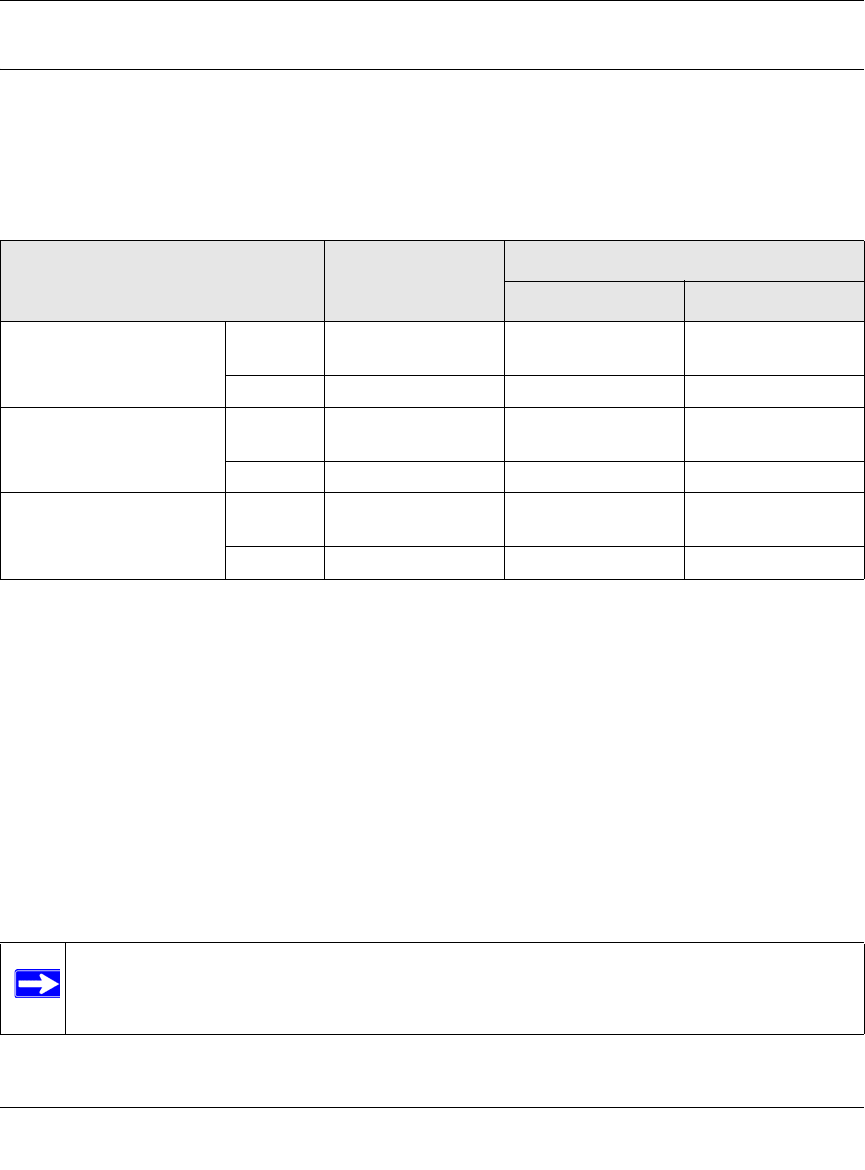
ProSafe VPN Firewall 200 FVX538 Reference Manual
C-10 Network Planning for Dual WAN Ports
v1.0, August 2006
Virtual Private Networks (VPNs)
When implementing virtual private network (VPN) tunnels, a mechanism must be used for
determining the IP addresses of the tunnel end points. The addressing of the firewall’s dual WAN
port depends on the configuration being implemented:
For the single gateway WAN port case, the mechanism is to use a fully-qualified domain name
(FQDN) when the IP address is dynamic and to use either an FQDN or the IP address itself when
the IP address is fixed. The situation is different when dual gateway WAN ports are used in a
rollover-based system.
• Rollover Case for Dual Gateway WAN Ports
Rollover (Figure C-7) for the dual gateway WAN port case is different from the single
gateway WAN port case when specifying the IP address of the VPN tunnel end point. Only
one WAN port is active at a time and when it rolls over, the IP address of the active WAN port
always changes. Hence, the use of a fully-qualified domain name is always required, even
when the IP address of each WAN port is fixed.
Table C-2. IP addressing requirements for VPNs in dual WAN port systems
Configuration and WAN IP address
Single WAN Port
(reference case)
Dual WAN Port Cases
Rollover
a
a. All tunnels must be re-established after a rollover using the new WAN IP address.
Load Balancing
VPN Road Warrior
(client-to-gateway)
Fixed Allowed
(FQDN optional)
FQDN required Allowed
(FQDN optional)
Dynamic FQDN required FQDN required FQDN required
VPN Gateway-to-Gateway Fixed Allowed
(FQDN optional)
FQDN required Allowed
(FQDN optional)
Dynamic FQDN required FQDN required FQDN required
VPN Telecommuter
(client-to-gateway through
a NAT router)
Fixed Allowed
(FQDN optional)
FQDN required Allowed
(FQDN optional)
Dynamic FQDN required FQDN required FQDN required
Note: Once the gateway router WAN port rolls over, the VPN tunnel collapses and must
be re-established using the new WAN IP address.



